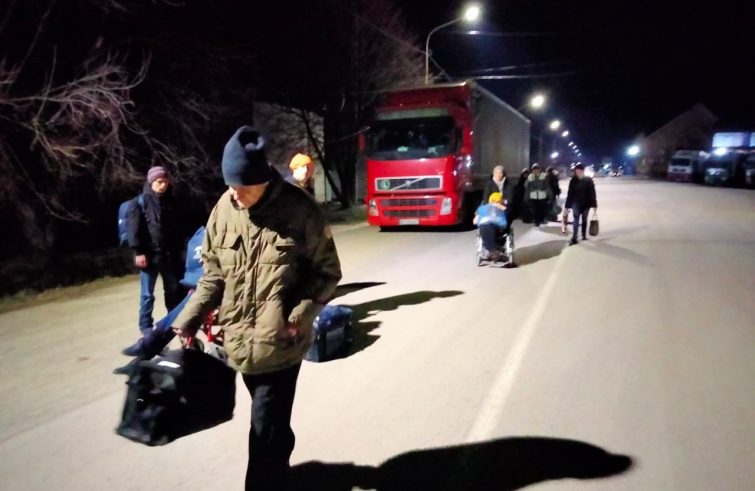
“To be honest, from our side, we are detecting no significant movements or signals. Our priests and nuns tell us that everyday life continues as normal. The messages that reach us over the Internet cannot be verified by us.” In a phone conversation with SIR, Msgr. Anton Coșa, bishop of Chișinău, explains what is happening in Transnistria, the small region nestled between Ukraine and Moldova. Tensions have reportedly flared up over the last few hours, especially with the intensification of strikes on Mykolaiv and Odessa. Kiev reports suspicious manoeuvres and provocations, but the Moldavian Foreign Ministry – quoted in Ukrainska Pravda – denies this, claiming that as yet there has been no confirmation of the mobilisation of Russian troops in Transnistria. The Bishop of Chișinău points out to SIR:
“As Church, we are very careful not to get involved in or spark off arguments that could be grounds for conflict even within our communities, which have a fairly heterogeneous composition.”
The local Catholic community includes Polish, Ukrainian and Russian believers. “In Transnistria – the bishop explains – most people keep themselves informed through Russian media outlets, since they constitute the only source of news in this region. So obviously the perception of reality of the local population is different from ours. If we were to issue differing statements or remarks, we would risk being challenged even within our own communities. Some of our priests have drawn my attention to this aspect with regret.”
Thus, at this very critical time of ongoing conflict, the local Church must be careful “not to stir up feelings of mutual mistrust in our communities nor give rise to fears including towards our priests of Polish, Italian and Romanian origin. I have written to our priests to remind them to adopt a responsible approach as shepherds towards their flock, avoiding causing divisions or clashes with statements siding against or in favour of someone.” He adds: “we must all build on the premise that everyone is free to believe and choose what they think is best, and no one can be forced to endorse our views.” People living in these territories have different backgrounds and origins. “Many residents have their children, mothers and fathers in Russia. So it’s only natural for them to have Russia as their common point of reference – explains Msgr. Cosa-. This explains the difference of opinions – stemming from the angle from which the events are observed.
Therefore, given this diversity, the best attitude is to remain silent, listening to the other person and trusting that what they say is a heartfelt belief.”
In other words, the ongoing war risks further polarizing a society permeated by differences. “That’s why it’s so important to be very careful not to play into someone’s hands, not to be subject to manipulation or propaganda, And, above all, to set a good example. Our prayers are for all. Our charitable efforts reach out to everyone. Our Churches are open to all. Only in this way can we offer our contribution. After all, Jesus said: “By this everyone will know that you are my disciples… See how they love one another and are ready to die for each other.”
With regard to the refugee situation, the small Moldova has been mobilised since the outbreak of the conflict. Now, more than a month into the war, there no longer are the huge number of refugees of the first days.
However, it is estimated that 100,000 people have remained.
Some have started to return home, at least to check and monitor the situation there. Others are waiting for the right and safe moment to return to Ukraine. There are also some who are considering continuing their journey to other countries in the West, and thus many have already left. Then there are those who had gone to Ukraine for work but are of Moldovan origin and are therefore hosted in their former homes, with relatives or friends. But they too are being helped because they are facing difficulties. “Our Church and Church-related institutions have been paying special attention to the nuances of the migration phenomenon, tailoring our assistance to the refugees’ various needs. Many have returned to Ukraine even though it’s still dangerous because they had left there their husbands or older children. Moreover, now is the time to return to work the land. Should they not do so, they risk dying of hunger.”









